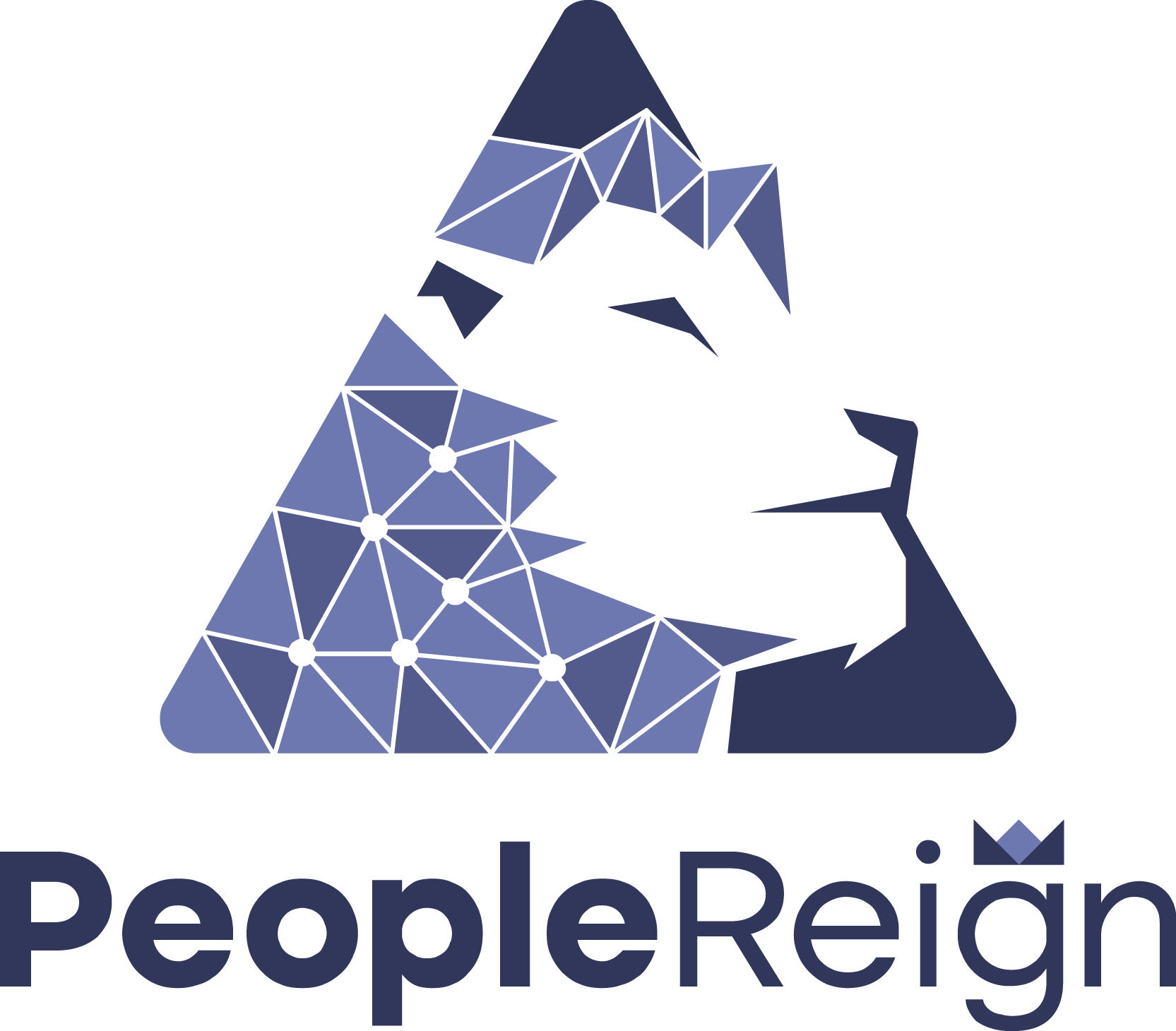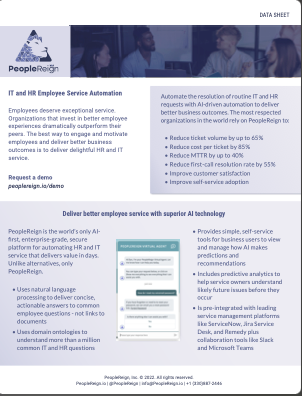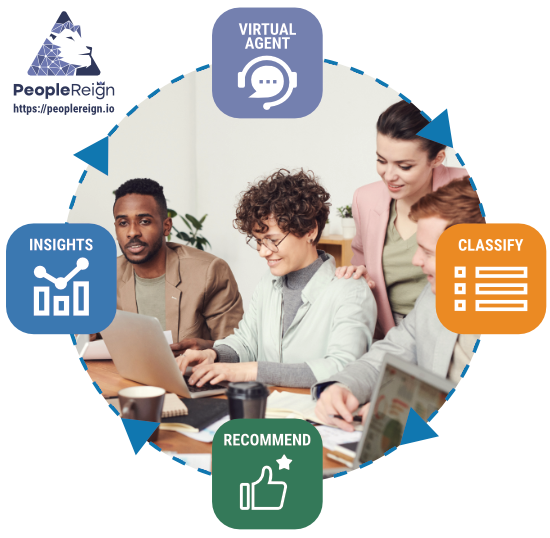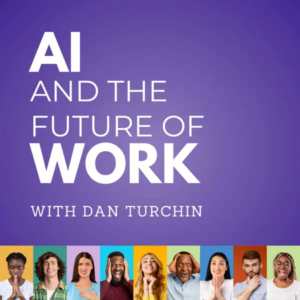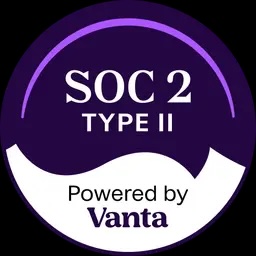This is a transcript from the AI and the Future of Work podcast episode featuring Phil Johnson, founder and CEO of Master of Business Leadership, discusses how leaders can overcome adversity by improving their EQ
Dan Turchin (00:17):
Good morning, good afternoon, or good evening, depending on where you’re listening. Welcome back to AI in the future of work. Thanks again for making this one of the most downloaded podcasts about the future of work. If you enjoy what we do, please like comment and share in your favorite podcast app, and we’ll keep sharing great conversations. I’m your host, Dan urchin advisor insight finder, the system of intelligence for it. Operat and CEO of people rein the AI platform for it. And HR employee service machines are getting smarter. Mundane tasks are being automated in every industry. As you know, from listening to this show from manufacturing to healthcare education, even software engineering, but ironically leadership is, is more important than ever. Employees are confused about where to invest in new skills, to Futureproof their careers. And as leaders, we have an opportunity to help our teams prepare to coexist with smart machines that starts with understanding which skills are innately human things like creativity, empathy, and the ability to exercise rational judgment, a theme that we’ve covered recently on this show today, we get to discuss what’s new in the field of leadership development with a true expert.
Dan Turchin (01:35):
Phil Johnson is the founder in CEO of MBL, the master of business leadership program. He started 21 years ago in 2001 Phil’s story of achievement, amid adversity inspired him to help others become better leaders and develop the EQ or emotional intelligence required to recruit, develop, and motivate high performing teams. Before founding NBL. Phil was an executive at high tech companies, including national semiconductor and Mitsubishi after starting his career in field sales at the iconic Fairchild semiconductor Phil. Great to have you, and welcome to the the podcast let’s get started by Amy share maybe a little bit more about your background and what led you to start BL
Phil Johnson (02:20):
Hey Dan, thank you. It’s it’s a pleasure to be on your show. My, my journey to doing what I’m doing now actually began 68 years ago because I was born with dyslexia and that caused me, by the way back in those days, there was no such thing as dyslexia or 80, the ADHD, you were just labeled a slow learner. But having been born with dyslexia, it caused me to do a lot of what I now refer to as emotional labor, much like a blind person that develops great hearing because my brain doesn’t work the way most people’s brains work. I had to compensate by doing what turned out to be the avenue of developing emotional intelligence, higher consciousness and inspirational leadership.
Dan Turchin (03:20):
So, so what’s the biggest blind spot that leaders have as they go through the NBL program.
Phil Johnson (03:27):
Great question. Thank you for asking it. The biggest blind spot that leaders have is that they’re not leaders. If you, first of all, leadership is not a, it’s a choice. If you need a title to get people to follow you, you’re not a leader. If your behavior doesn’t inspire people to wanna follow your example, you’re not a leader. So unfortunately a lot of the toxicity we see in organization begins at the top that needs to change.
Dan Turchin (04:08):
I watched some of the really impressive testimonials on the NBL website. Give us one example of a client that changed his or her leadership style based on the NBL program and kind of what, what it was that you helped him with. Sure.
Phil Johnson (04:24):
Or I’ve helped organizations generate lots of revenue over a billion and a half dollars. I’ve helped people double or triple or compensation I’ve helped to build more trusting with higher levels of employee and customer engagement. But maybe my single biggest thing that stands out for me is somebody that I never coached. He was actually the father of of an executive I’ve been coaching for for many years in a global organization. And he told me once that he, his dad’s no longer with us, but at, at some point he he said, you know, he said, I don’t know what you’re doing, but whatever you’re doing, keep doing it because I like, I like what I’m saying. So that’s kind of it’s always stuck with me and really it’s the real test of leadership when people are drawn to you because of who you are because of your behavior,
Dan Turchin (05:43):
How do you measure your success, the impact that you’re having on your clients,
Phil Johnson (05:49):
Results, actions and results. The whole focus, because the development of emotional intelligence is an experiential process. It’s not an intellectual process. In other words, you can’t develop emotional intelligence by having a conversation or reading a book or watching a video. it’s an, it’s an experiential process. So that, so the real measurement is you’re actions and the results of those actions.
Dan Turchin (06:22):
I recently had a guest on this show named Matt Parker, who just published a book called the radical enterprise. And his thesis is by the way, he spent eight or nine years in engineering leadership roles at a company called pivotal labs, which is as famously developed a what, what they call a managing culture. So they actually, if anything bit contrarian, they you know, aggressively pursue a very flat organizational hierarchy. And that claims, you know, that’s kind of a, that’s the organizational structure of the future. What are your thoughts on a flatter organization that may be takes the emphasis off of kind of the, the prototypical you know, leader, you know, on, on the podium.
Phil Johnson (07:12):
<Laugh> have you ever watched a flock of starlings at sunset? It’s some beautiful videos. You can have thousands of starlings flying together. Like they, they form like a, a, a wave in the air. it’s quite beautiful. And they do that as a way of protecting themselves from predators, you know, strength, the numbers, but they never bump into each other. They can, they can flow through the air thousands and thousands of Sterlings, never hitting each other. It’s quite, it’s quite beautiful. it’s like a watching a, a symphony. And that requires that it’s sometimes we be leaders and sometimes we’re followers and we need to be both. We need to be leaders and we need to be followers. And how we do that when we do it is a reflection of our level of consciousness. It’s a reflection of our level of emotional intelligence, so that the more emotionally intelligent in individual an organization is the less drama chaos and conflict. There isn’t that organization. And it makes it easier for the organization to flow.
Dan Turchin (08:48):
I’d argue that it’s harder to out for leaders to keep teams engaged and motivated than it has been a time through call it, you know, a confluence of trends shift to hybrid work. We’re undergoing what we call the great resignation. 4 million employees chose to quit their jobs in Q4 of 2021 alone record. What’s your coaching for leaders now versus what it might have been three years ago?
Phil Johnson (09:20):
Yep. I’m gonna say a few things and I wanna warn you in advance that they’re gonna be a little controversial and they’re gonna be a little upsetting, but I, they need to be set we’re at a tipping point as a species on the planet. We have a tsunami of change coming at us, and we’ve got a 500 million year old brain that doesn’t like change. We’re going to experience growing levels of drama, chaos, and conflict everywhere in the world. And the only solution to being able, and some scientists estimate that we could experience the equivalent of 20,000 years worth of change in this century. So change has gone from being occasional or episodic to exponential, and we’ve got a 500 million year old brain that doesn’t like change. There is significant both biological and sociological resistance to change. And the development of our emotional intelligence is the only tool we have to be able to feel the anxiety that changing innovation always creates in us and move through it towards the vision of our desired results, as opposed to allowing that anxiety to control us.
Phil Johnson (10:53):
So with a, we have to make a radical change in our trajectory as a species quite for frankly, there isn’t another species on the planet that would not be better off if we didn’t exist. We’re the virus on the planet. And we have to develop our emotional intelligence in order to be able to deal with and embrace the tsunami of change coming at us. And technology is certainly one big aspect of it, but every area, every, every part of our existence is being challenged. We are all being ripped out of our comfort zones, whether we like it or not, and we’re terrible at change, we’re terrible at it. And we need to get better at it. And the development of our emotional intelligence is the key. It is the only thing we can do to be able to face the tsunami of change coming at us.
Dan Turchin (12:03):
A lot of that made sense to me, except the part about humans being the species that it, the virus on the planet. Unpack that a little bit for me.
Phil Johnson (12:12):
Sure. climate change, we’re destroying the planet and we know it. We know it, but we’re, we’re too afraid to think about it or do anything about it. Politics, toxic environments, toxic work environments, the current level of employee engagement worldwide, according Gallup is about 13%. So it’s costing low levels of employee engagement, toxic environments. It’s costing the us economy alone over a trillion dollars a year, over a trillion, a dollars a year. And there’s almost a one to one correlation between the level of employee engagement and the level of customer engagement. If your employees aren’t engaged, if they don’t feel safe, then neither do your customers. We’re dealing with things like gene editing, CRISPR CA nine technology, AI, other pandemics. There’s a host of else. There’s a host of icebergs out there and we’re on the Titanic.
Dan Turchin (13:31):
Let’s go with your thesis. We’re the problem and a big factor that contributes to a lot of the the viruses that we perpetuate as a species are related to, let’s say poor emotional intelligence. Mm-Hmm <affirmative> what do you use as your definition of emotional intelligence? And more importantly, you’re the expert here? What can listeners do to improve their emotional intelligence?
Phil Johnson (13:59):
Two great questions. First of all, the definition, a really basic definition of emotional intelligence is the ability to feel the fear that change in innovation creates in us and do the emotional labor of moving through the fear towards the vision of our desired results that develops emotional intelligence raises our level of consciousness and creates inspirational leadership. Only conscious about three to 5% of the time. The rest of the time, we’re relying on our unconscious habits to determine our behaviors and our results. So Emotional intelligence is done is developed by doing the emotional labor moving through our fear rather than allowing our fear to control us, allowing our fear, to keep us trapped in our comfort zones. It has to do with energy physics. I wanna preface what I’m about to say By telling your listeners that I’ve been proving this theory all over the world for the past 21 years. So I’m gonna to describe the root cause of all drama, chaos, and conflict, and the solution. Does that sound worthwhile?
Speaker 3 (15:20):
<Laugh>
Phil Johnson (15:22):
When we’re born, we’re not born with a conscious mind. Our conscious mind doesn’t kick in until we’re about a year or so, but we are born with a, with our unconscious mind and we immediately start wiring up our brain, creating the neural network pathways on our brain that become our habits in order to survive in order to fit in, get food, that kind of stuff. And a lot of those habits are what I refer to as victim habits. They’re habits that cause us to unconsciously get, have away our energy. And we do it in a myriad of ways. How we listen communicate, take responsibility, make decisions all sorts of ways. But when we give away our energy, it creates an energy deficit in us. And at the same time, we’re giving away our energy. We have to be simultaneously trying to steal the energy of other people to make up for the energy we’re unconsciously giving away. So that dynamic is going on inside of everybody everywhere, all the time, all over the world Unconsciously. So what I do in the NBI program is I show people how they’re unconsciously giving away their energy. And I give them better habits to practice, to stop doing that. And when they stop giving away their energy, their need to steal the energy of other people goes away because they don’t need it. And it’s in that process
Phil Johnson (16:56):
That they develop their emotional intelligence. They become more conscious of what’s going on in them and around them. And they become more inspirational leaders. And I often ask People I’m coaching through the process and they’re going, holy shit, this is amazing. This is incredible. Why didn’t I get this anywhere else? And I’m saying, yeah, I know I said, but let me ask you something. Is there anything I could have said to you in the beginning before we started working together, they could have prepared you for what you know now. And everybody says, no. See, because this is an experiential process.
Phil Johnson (17:44):
It always requires an initial leap of faith and that motivation to take that leap of faith, of leave your comfort zone. There’s only two sources of motivation. There’s only two things that will cause us to leave our comfort zone and do the emotional labor that requires one is pain. The other one is passion and hardly anybody’s connected to their passion. So the thing that all I’ve coached many, many people, many organizations, and the thing they all have in common is pain. They have an urgent desire for better results than they’re currently getting. And they’re, they’re, that’s motivating them to leave their comfort zone and do the emotional labor that requires. But what’s interesting as they go through this process, the motivation changes from a motivation based on pain to get away from something to a motivation based on passion, to move towards the vision of their desired result.
Dan Turchin (18:48):
So let’s extend that a step beyond on and connect a point that you made previously. So employees that are more engaged that have better experiences at work, deliver better outcomes for customers. Yep. That’s not too controversial. Now leaders that have higher emotional intelligence presumably deliver better experiences for employees. <Affirmative> if that’s the case, what’s your coaching to leaders about how they can measure the value or the quality of the employee experience. And what are some specific things that you coach in NBL for leaders to do, to improve their emotional experience, to then improve the employee experience or sorry, the emotional intelligence.
Phil Johnson (19:32):
Yeah. Let me give you an example. Just one of the one of the Ambi habits authentic listening, how somebody feels about you, whether they like you or whether they don’t has nothing to do with you. It has to do with what’s going on inside of that person, whether they will alls up or not, whether they’re being resistive, judgmental, or attached to outcome. But if, how you feel about yourself is based on how somebody else feels about you, who’s running your life, you or them. If how you feel about yourself is based on how somebody feels about you. Who’s running your life. You were them
Dan Turchin (20:18):
Them,
Phil Johnson (20:19):
Right. You’re giving away your power to them to determine how you should feel about yourself. I mean, if you like me out like me, if you don’t like me, I don’t like me. How crazy is that? But we do it all the time. Look at social media, we’re begging for people to like us so we can like ourselves. We’re, we’re looking for that. Dopamine hit that. I’m okay. So they’re, they’re viewing power as external, instead of viewing power as internal. That’s just one example of how we C unconsciously are giving away our energy to others. And that I’m C even though it’s unconscious, it’s creating that void in us, that energy deficit in us that we need to make up for by trying to control and manipulate others.
Phil Johnson (21:21):
And we see evidence of that everywhere in the world. Great example of a, an authentic, emotionally intelligent leader, lairs and Linsky, great example of somebody using position based power to try and control and manipulate others and create drama, chaos, and conflict Putin. The effect of that. Those are two good examples of emotional intelligence and a lack of emotional intelligence. Let me give you another example, a company that’s currently doing over a trillion dollars a year in sales, that bases almost their entire hiring process on the search for people with above average levels of emotional intelligence, that company is apple Apple’s whole hiring process. The reason when you go into an apple store, that energy you feel is an example of a more emotionally intelligent environment. They’re not trying to sell you anything. They’re trying to understand your pain and if possible help you, you, whether you buy anything or not is secondary. They want you to have a, they want you to have a great experience. Maybe you’ll go tell your friends and maybe they’ll tell their friends. This is the future of organizational development. the development of emotional intelligence is the future of organizational development.
Dan Turchin (22:52):
Tell us more about out the selection process at apple. How do they select for high EQ?
Phil Johnson (22:57):
They ask questions. I I often how, how do you handle embarrassment? How do you, I’ve got a whole, I’ve got a whole list of hiring emotional intelligence. Okay. Here’s some questions. Why is this role of interest to you? How will this role help you to achieve what you want? What do you consider to be a few of your strengths? What can you teach us? Who’s responsible for your results? What makes you laugh? When’s the last time you were embarrassed? What happened? How did you handle the situation? What activities energize you? What are two personal habits that have served you? Well, how good are you at accepting help from others? How good are you at asking for help? What is one of the internal battles you have each day? What makes you angry? What aspect of your work are you passionate about? Is your primary focus on pre or future events? So these are some of the questions that can provide insights into an individual’s level of emotional intelligence, but I’ll tell you the greatest thing is that as you develop your emotional intelligence, it becomes much easier, easier to see it in other people. It becomes much easier to be able to determine whether somebody has their walls up or whether they have their walls down,
Dan Turchin (24:45):
The best leaders that I’ve been around when they walk into a room, their energy just pervade, you know, it’s per pervasive. You just, there’s just something about it. It’s it’s the EQ it’s. You just know it. the, the concept of a leader walking into a room has kind of, kind of gone away. You have a lot less opportunities as leaders, you know, to, to share your, your, your energy with groups. How do we compensate for the new new styles of work?
Phil Johnson (25:17):
Let me just make a comment on what you just said. The reason we’re able to sense we walk into a room, we can get a sense for the energy of the room is because we’ve evolved from we’ve. We’ve evolved from Herz, from tribes, and it’s, it it’s been, it was a for us to be able to determine who’s trying to help us and who’s trying to eat us. So we’ve developed these specialized brain cells in our prefrontal cortex, that brain scientists called mirror neurons. I call them bullshit meters. So that’s why you’re able to, you’re able to sense the energy of the other person. You’re able to sense whether their walls are up or whether they’re down and that ability exists today. So that’s, that’s why it’s your actions, not your words that are most important. They have, if you have integrity, what you think say, and do has to be the same thing. But the primary thing that creates inspirational leadership is what you do your behavior
Dan Turchin (26:38):
So obvious when you say it that way
Phil Johnson (26:42):
You make that’s another good point, because we don’t know what we don’t know. And it’s only, we can’t obtain results that are beyond our current level of consciousness. If we wanna get better results than we’re currently getting, we have to raise our level of consciousness. It’s only obvious to you because of your current level of consciousness, but I guarantee you, there are people in the audience that think that this conversation we’re having is Swahili. It only resonates with you because of the emotional labor that you’ve been doing in your life.
Dan Turchin (27:25):
So there is a generate of leaders that doesn’t have some of the advantages that you and I have had throughout our careers. Mm-Hmm <affirmative>, they don’t have the kind of serendipitous, you know, hallway conversations or the, you know, the networking opportunities. What do you tell that new generation to, you know, what’s, what’s, how should they change their style to unlearn some of the things that that our generation of leaders already know to be effective.
Phil Johnson (27:59):
You can’t, you can’t unlearn. Once you develop a habit, it’s there forever. It’s a neural network pathway in our brain. What you need is you need to develop better habit to obtain better results. They, what I would tell the, excuse me, is the single best thing they can do for themselves and their organization that will guarantee the rest of their life will be the best of their life is to invest in the development of their emotional intelligence. See, you can’t change an organization. Organizational organizational change is exponentially harder than individual change. You have to begin with the individual to change the culture within an organization.
Phil Johnson (28:52):
It’s a bottom up process. It’s not a tough opt down process. You have to begin with you. A culture is just a reflection of the people in the culture. And so there’s a methodology for individual change, and there’s a separate methodology for organizational change, but it, organizational change must always begin with individual change. And quite frankly, that billions of dollars that organizations are wasting. It’s just ludicrous. I mean, they, they throw money at, they throw money at organizational change and they cross their fingers. Well, I better do something. I better do a, an employee engagement survey or I better, it has to begin with us as individuals. You gotta, you’ve gotta invest in yourself first.
Dan Turchin (29:58):
So we’re better at time, but I’m not, not letting letting you off the hot seat without answering one last question for me is it show where we talk mostly about technology and the role of technology and changing the workplace. Tell me, what’s the one thing that technology will do to most influence the role of leaders and shape organizations and call it in the next decade.
Phil Johnson (30:25):
Technology will allow us to remove barriers, borders. It will enable everybody to reach anybody in the world instantly, and that’s going to create the opportunity for real relationship. Again, it comes down to the individual. It’s gonna enable us to develop the trusted, the trust, the trusting relationships that are the foundation for church change.
Dan Turchin (31:07):
I like the way you say that. I firmly believe that physical distance goes from being a constraint to an opportunity. Yeah, we, we no longer have to select the best talent in a zip code. We select the best talent on the planet and as leaders, I think that’s a tremendous opportunity.
Phil Johnson (31:25):
I work from all. I work with people all over the world, just like this. And it’s a it’s connection is seconds away.
Dan Turchin (31:39):
This has been a great conversation. I wanna make sure before we let you go, we tell the audience how to learn more about you and your work.
Phil Johnson (31:49):
Subscribe to my free newsletter, my daily newsletter on, on LinkedIn. I just started it a little over two weeks ago, and there’s already almost 4,200 subscribers. So that newsletter is kind of a distillation of all the books I’ve written and the thousands of articles I’ve written over the, over the last 30, some odd years. I would recommend that
Dan Turchin (32:15):
There you have it from the great Phil Johnson. Go subscribe to the newsletter. So thanks for coming by. Great hanging out.
Phil Johnson (32:21):
My pleasure. It’s it’s an honor, Dan.
Dan Turchin (32:24):
Well that’s a wrap for this week on AI in the future of work. I’m your host, Dan Turin. And we’re we’re back next week with another fascinating guest.
